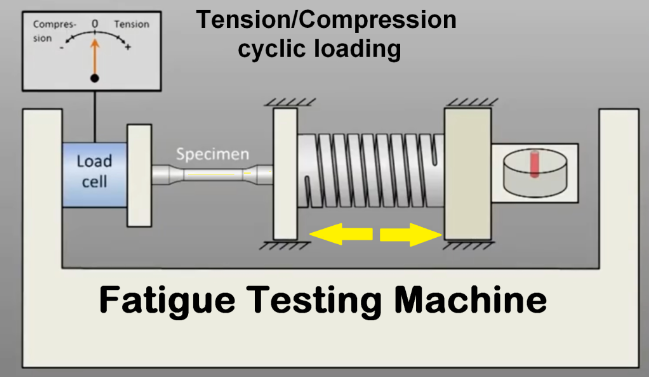Why to test the fatigue properties of materials
Testing the fatigue properties of materials is essential for several reasons in engineering and materials science:

Safety: Fatigue failure is a common cause of catastrophic failures in structures, machinery, and vehicles. Testing helps ensure the safety of these systems and prevents accidents that could result from fatigue-induced failures.
Reliability: Understanding how materials behave under cyclic loading conditions helps engineers design products and structures that will last their intended service life without unexpected failures.
Cost-Efficiency: Fatigue testing helps identify the potential for long-term wear and tear, allowing engineers to select materials and designs that minimize maintenance and replacement costs.
Product Development: It aids in the selection of appropriate materials for specific applications, leading to better product performance and longevity.
Quality Control: Fatigue tests are often used as a quality control measure during manufacturing to ensure that materials and components meet specified fatigue life requirements.
Regulatory Compliance: In some industries, like aerospace and automotive, there are strict regulations and standards that mandate fatigue testing to ensure the reliability and safety of products.
Research and Innovation: Understanding the fatigue behavior of materials can lead to innovations in material development, allowing engineers to design new materials with improved fatigue resistance.
Environmental Impact: By understanding how materials fatigue and fail, engineers can design products with longer lifespans, reducing waste and the environmental impact associated with replacing worn-out components or structures.
Predictive Modeling: Data from fatigue testing can be used to develop predictive models that estimate the remaining fatigue life of a component or structure, allowing for proactive maintenance and replacement scheduling.
Performance Optimization: Fatigue testing can reveal weak points in designs, allowing engineers to make necessary improvements and optimize the performance and durability of products.
In summary, fatigue testing is crucial for ensuring the safety, reliability, and cost-effectiveness of materials and products across various industries. It helps engineers make informed decisions during the design and manufacturing process and contributes to advancements in material science and engineering.
Want to learn more about fatigue testing machine, please visit http://www.horizontester.com.